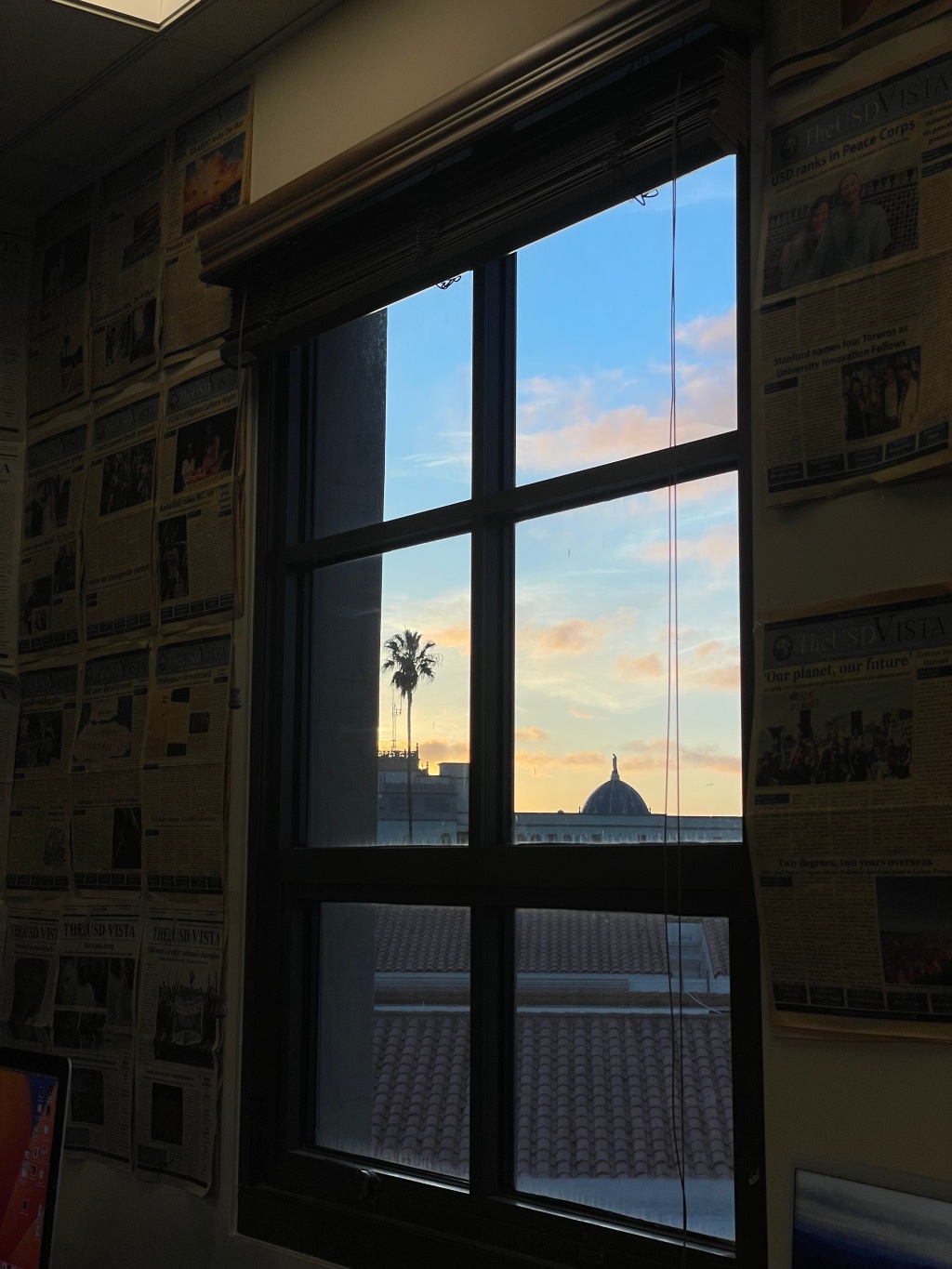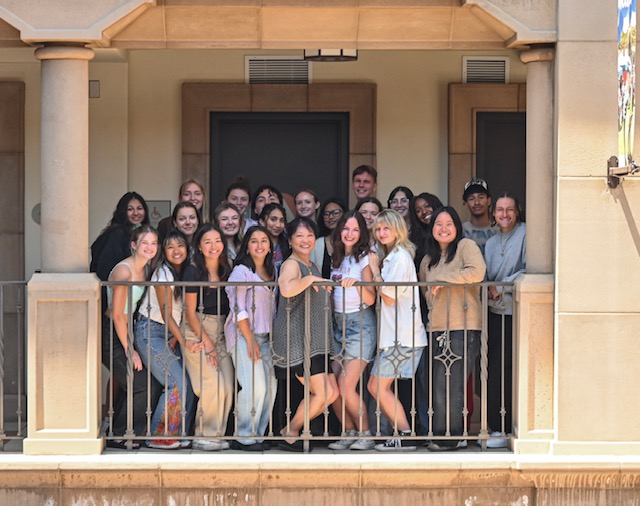It’s normal to crave the next ‘new’
ABIGAIL CAVIZO / ASSOCIATE EDITOR
During the Spring 2023 semester, I spent five months in Madrid, Spain. Before then, I had never stepped foot outside the U.S.; I had hardly left the west coast. Traveling was something I always wanted to do, but I never knew what to expect. Everything was new. It was fast-paced, vibrant colors. I was never alone, because, how could I be? The people were everywhere; the streets flooded with locals and visitors alike. I loved my 40-minute bus ride to school, my sacred novelty. I adored learning the past of a new country, walking along the same cracked cobblestones where blood had once spilled from old wars I had only ever read about in my high school history books. Every mundane activity was a treasure.

Photo courtesy of @usd_business/Instagram
I learned a lot about the world and about myself, and I was determined to carry those lessons back home with me. However, I was met with a new challenge when I came back home — one that I didn’t expect. The things that used to excite me here in San Diego felt too routine. Where I used to find comfort in the customary, I began to resent the familiarity. I was confused because just earlier this year, I was filled with a wonder I didn’t know I was capable of — the world was so big and my problems were so small (a mantra I often repeated to myself). It took me some time to grapple that I am not made of high-highs and low-lows. I’m going through a common phenomenon known as “post-study abroad depression.”
According to iSchoolConnect, a popular platform where college students find abroad programs, post-study abroad depression (PSAD) is defined as a wide-range of emotions that students experience after living in another country overseas. Many students “return home often report feelings of culture shock [upon reintegration], depression, anxiety and loneliness.” Understanding why PSAD occurs is the first step to finding peace again in coming back home. Spending a limited amount of time in a new environment breeds a space for fresh, once-in-a-lifetime experiences. Because of this, stimulation is easy to find abroad, but less accessible at home.
In the human brain, there is an area known as the substantia nigra/ventral tegmental area, or SN/VTA. Otherwise known as the “novelty center,” the National Library of Medicine, describes it as the part of the brain that “regulate[s] reward consumption, learning, memory and addiction behaviors through mediating dopamine (DA) release in downstream regions.” The brain is pumped with dopamine through new — and exciting — experiences. To have a constant stream of dopamine while in a different country suddenly limited in such a quick reversion, is a hard adjustment for many.
The switch from being overseas to coming back home is a reverse culture-shock that many do not think about until returning to the U.S. It’s normal to crave the next “new”, especially when it was so easy to do so in a setting where new exploration was easy to seek out.
USD senior Bela Bidaburu also studied abroad in Madrid during the Spring 2023 semester. She shared her experience with PSAD.
“Starting my senior year [after my semester abroad] as a STEM student, lifestyle-wise, is so much harder here than in Spain. In Spain, they value work-life balance much more than they do here,” Bidaburu said. “I’m currently struggling [with finding ways to combat PSAD], but I’m just trying to find ways to look forward to things, like traveling again.”
USD senior Kylie Kumnick studied abroad in Prague in the Czech Republic during the Fall 2022 semester. Since being back in the U.S. for a year, she offered advice to students who may be wrestling with their emotions about theirtime away from home.
“Coming back [to the U.S.], you just are expected to put your head down and get back to that grind, which was hard for me to adjust to again,” Kumnick stated. “You need to focus on the best part about coming back. I really leaned on that aspect of seeing all my people: friends, family and people [who] I haven’t seen in awhile. I really think the people [in your life] make a difference.”
Finding the “new” in life can be accomplished everyday, but sometimes when the familiarity feels suffocating, a perspective change is needed.
USD exchange student Nawel Akar is from Strasbourg, France. This semester, she has the opportunity to study here in San Diego, at USD.
“Everything here [in San Diego] is so beautiful and different. Everything is so different from France, especially the differences the city itself has to offer,” Akar said. “You can go from city [in downtown] to the beach to the greenery [in Balboa]. I couldn’t get tired of it. It’s so new and different.”
Chasing the dopamine rush of the “new” is not limited to traveling abroad. People can look for signs of “new” everywhere — in the friends they make, in the love they seek and in the experiences they desire. People do not have to chase the literal “new” of a country, in order to feel high levels of dopamine. We can find “newness” in the routines we’ve established, by looking at our situations with new eyes, or trying to see it through the eyes of an outsider. There’s value in recalling the first time something happened, remembering what it felt like to first step foot on USD’s campus as a first-year. Just because something may seem stagnant does not mean it is. There is movement in the water — we just have to search for it.
If you or someone you know is dealing with any form of depression, the USD Wellness center is a resource open to all students. Contact them wellness@sandiego.edu or call +1 (619)260-4655 to book an appointment.





Leave a comment